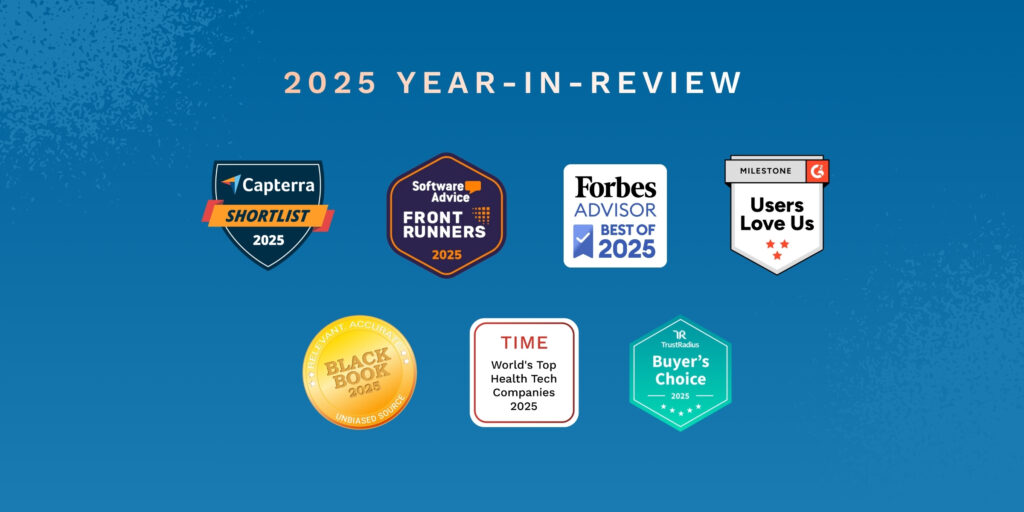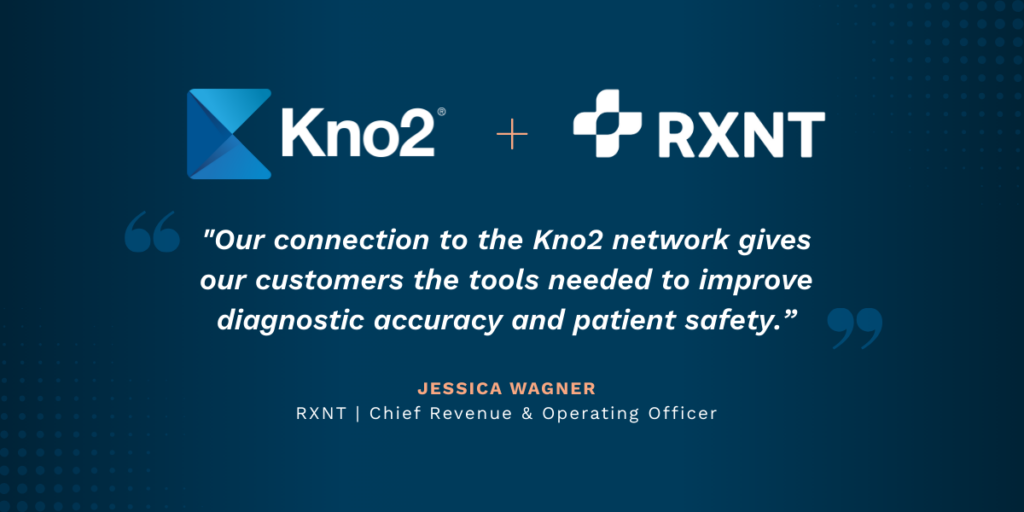While healthcare providers are embracing AI to improve diagnostics, automate documentation, and streamline operations, many patients remain skeptical, confused, or even fearful of these tools.
Imagine a patient skips a follow-up appointment because they didn’t understand the alert from their patient portal—or worse, didn’t trust it. While healthcare providers are embracing AI to improve diagnostics, automate documentation, and streamline operations, many patients remain skeptical, confused, or even fearful of these tools.
RXNT recently saw how wide this digital divide is in a survey of providers and patients. The majority of providers overwhelmingly trust and actively use AI tools, recognizing their potential to enhance outcomes and efficiency. Patients, on the other hand, hesitate.
And this matters—because when patients opt out of technology, it can result in poor communication, missed preventative opportunities, and disjointed care coordination. The challenge isn’t just rolling out AI; it’s bringing patients along for the journey.
Below, we’ll explore patients’ top concerns with AI in healthcare and provide actionable strategies to bridge the digital divide.
Patients’ Top Concerns About AI in Healthcare
While AI holds the promise of revolutionizing healthcare through enhanced diagnostics, streamlined operations, and personalized treatment plans, patients’ apprehensions cannot be overlooked. Knowing these concerns is pivotal for healthcare practitioners who want to foster trust and ensure successful AI integration.
Below are the top three concerns patients have about AI tools in healthcare.
1. Privacy and Data Security
Patients are increasingly wary about how their sensitive health data is collected, stored, and utilized in AI-driven systems. The concern about data breaches and unauthorized access is significant among patients. According to one source, 37% of surveyed patients think that AI tools would decrease security around patient records. That concern is only heightened when data is shared across platforms—especially if patients do not give explicit consent. In addition to patient concerns, another study found that AI tools in healthcare face significant integration challenges, furthering the concern of ensuring data privacy and confidentiality.
2. Misuse of Personal Information
Beyond breaches, there’s a concern about the potential misuse of personal health information. Patients fear scenarios where their data could be sold to third parties, used for targeted advertising, or influence insurance premiums.
For example, CBS News reported on a faulty AI tool that faced backlash over ethical concerns and healthcare coverage, underscoring the delicate balance between data utilization and individual rights. Such instances highlight the importance of transparency in data handling and the necessity for robust consent mechanisms to ensure patients are fully informed about how their data is used.
3. Perceived Impersonality of AI-Driven Care
The healthcare industry is highly personal, and the introduction of AI can sometimes make interactions feel detached. One study found that patients were less likely to trust medical advice when they believed it originated from an AI source, even if the content was identical to that provided by a human physician. The feelings of distrust were especially felt around patient portal messages. While some patients appreciated the efficiency, satisfaction decreased when they learned the messages were AI-generated, indicating a preference for human interaction in healthcare communications.
Addressing these concerns requires a concerted effort from healthcare providers to ensure transparency, uphold data privacy, and maintain the human element in patient care. By proactively engaging with patients, seeking their feedback, and educating them about the benefits and safeguards associated with AI, providers can bridge the trust gap and pave the way for more effective and empathetic healthcare delivery.
Strategies to Bridge the Gap: Engaging Patients with AI
As AI tools become increasingly embedded in healthcare systems, providers must recognize the need for a proactive approach to gain patient trust and foster adoption. Bridging the divide between technology and patient acceptance isn’t just about introducing new tools—it’s about ensuring those tools align with patient needs, preferences, and concerns.
Below are three strategies that encourage patients to embrace AI in healthcare.
1. Be Transparent About AI Usage
Transparency is the cornerstone of trust. Patients need to understand how AI tools will affect their care, from the collection of their data to how decisions are made. The key is to provide clear explanations of the AI tools in use, especially when they affect direct patient interactions.
For example, a good practice is for providers to inform patients about AI tools like ambient listening systems or diagnostic algorithms before their appointment, explaining how these tools will be used to enhance their care and improve accuracy. By addressing concerns head-on, healthcare providers can increase trust and demystify misconceptions around AI tools.
2. Focus on Patient-Provider Communication
Even as AI becomes more prevalent in healthcare settings, the relationship between patients and their providers remains central. Providers should take the time to explain how AI tools work and how they enhance the patient experience. This includes reassuring patients about the security of their health data, explaining AI’s role in decision-making, and ensuring that AI doesn’t replace human care but rather complements it. Patients’ willingness to adopt new technologies increases when they feel informed and understood.
Additionally, our survey found that healthcare professionals who engaged in more frequent patient discussions about AI and technology adoption saw a 30% higher patient retention rate. By improving communication, providers can ease patients’ anxiety and strengthen trust in AI’s role in their care.
3. Keep Patients Involved and Ask for Feedback
Patients who are involved in the decision-making process are more likely to trust and adopt new technology. Gathering patient feedback through surveys, focus groups, or even informal discussions about their experiences with AI tools can make a significant difference.
Additionally, healthcare providers should emphasize the positive outcomes of AI implementation—especially how AI can improve patient care. For instance, AI tools in diagnostic imaging can help catch early signs of conditions like cancer or heart disease, leading to better patient outcomes. By making these benefits clear to patients, healthcare providers can shift the narrative from AI as a replacement to AI as an enhancement to human-centered care.
Simplifying the Transition: How RXNT Makes AI Adoption Easy
As AI continues to transform healthcare, it will be the providers who maintain a patient-centric approach—ensuring that technology enhances, rather than replaces, the human experience — who will lead the charge in improving patient outcomes and satisfaction. That’s where RXNT comes in.
With its user-friendly interface and integrated AI tools, RXNT simplifies the adoption process for healthcare professionals and their patients. By offering intuitive, easy-to-navigate systems, RXNT helps reduce the learning curve associated with new technology. This ease of use is essential for improving patient trust and ensuring the benefits of AI are realized in a way that doesn’t overwhelm or confuse patients.
Ready to see RXNT in action? Schedule a demo today.




